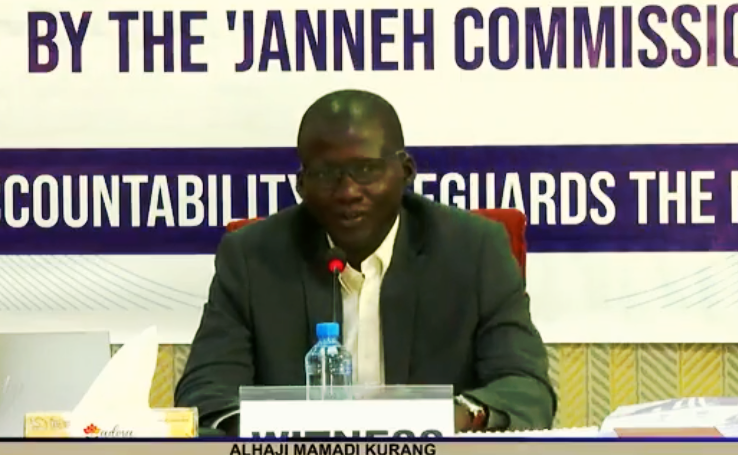Gambiaj.com – (Banjul, The Gambia) – The former Secretary of the Janneh Commission, Mamadi Kurang, on Tuesday laid bare a series of internal dysfunctions, budgetary constraints, and blurred lines of authority that hampered the Commission’s work in investigating the assets of former President Yahya Jammeh.
Appearing before the National Assembly’s Special Select Committee, Kurang said the Commission, which was set up to trace and recover stolen public assets, was structurally flawed from the outset. His testimony offered a detailed look at the Commission’s early struggles with staffing, funding, and decision-making.
Kurang said he was selected for the position specifically because of his neutrality. “The Attorney General at the time told me they needed someone who didn’t work under Jammeh, wasn’t a victim, but had the right technical background,” he told lawmakers.
Once appointed by legal notice, Kurang joined commissioners in a preparatory meeting to address the basic needs of the Commission — from laptops and mobile phones to office space and petty cash. But it quickly became apparent that the Commission lacked financial independence.
“We had no control over our own budget,” Kurang stated. “Requests had to go through the Ministry of Justice, and only then would funds be disbursed. That severely affected our efficiency.”
According to him, the Commission was also marred by a confusing and often contradictory reporting structure. Many of its staff were seconded from government ministries and continued to report to their original supervisors. “Some answered to me, others to their bosses at the Ministry. It created a lot of confusion,” he said.
Kurang also revealed tensions with the Commission’s lead counsel, whom he accused of withholding information. “She told me some information was meant for her alone,” he said. “But I told her, that information is for the Gambian people.”
A major focus of the hearing was the tagging, valuation, and eventual sale of livestock seized from Jammeh’s Kanilai estate. While a May 2017 High Court order had placed the livestock under the custody of the Gambia Livestock Marketing Agency (GLMA), Kurang said the Commission moved forward with the tagging and valuation before final court approval.
“We went to Kanilai, put tags on the cattle’s ears, and recorded their weight and sex. The GLMA provided estimated values,” he said. A team including Commission staff, security officers, and herdsmen conducted the exercise, but the Sheriff’s Office — later authorized by the court to oversee the sales — was not present.
Kurang was shown a court order granting the Sheriff and GLMA authority over the livestock. “That order came after the work was already done,” he insisted, adding that the Attorney General and lead counsel were fully aware of the Commission’s actions at the time.
He also confirmed writing a letter to request over D350,000 to facilitate the livestock sale, addressed to the Solicitor General and Judicial Secretary — but not formally approved by the Commission’s leadership.
Kurang further revealed that he had limited authority in matters involving the Registrar General, who was designated as the custodian of assets. “He came with his own team, including intelligence officers. I had no say in who he brought,” he said.
Despite a court order mentioning the Gambia Wildlife Services in connection with Kanilai, Kurang said the agency never engaged with the Commission. However, he did recount a separate episode involving starving hyenas. “We contacted an animal welfare group, and they went there to feed them. The animals recovered.”
Pressed on the Commission’s independence, Kurang concluded that the Ministry of Justice exercised outsized influence. “They facilitated everything, but that facilitation blurred the lines. We were not in control,” he said.
Although he served as Secretary, Kurang said key decisions — especially on finances and personnel — were often made elsewhere or delayed indefinitely. “They expected us to operate efficiently, but the setup didn’t allow for that. We made it work the best way we could,” he told the committee.
The hearing marks a critical moment in the National Assembly’s review of the Commission’s effectiveness and sheds new light on the political and bureaucratic challenges that dogged the country’s most high-profile post-Jammeh accountability effort.










